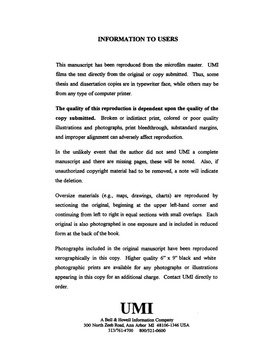| dc.contributor.advisor | Benson, Hugh, | en_US |
| dc.contributor.author | Vaughan, Barry Frank. | en_US |
| dc.date.accessioned | 2013-08-16T12:30:27Z | |
| dc.date.available | 2013-08-16T12:30:27Z | |
| dc.date.issued | 1999 | en_US |
| dc.identifier.uri | https://hdl.handle.net/11244/5773 | |
| dc.description.abstract | Socrates' assertions about the relationship between the cardinal virtues of justice, temperance, piety, courage, and wisdom have long been a source of controversy among scholars. While it is generally held that his position can be described as suggesting a unity among the virtues, the precise nature of this unity is debated. In this dissertation I argue that throughout the early dialogues Socrates is committed to the position that the various virtue terms are merely different names for virtue proper. I further argue that according to this view Socrates is committed to a position which entails that the virtue terms are synonymous with one another. I develop my argument by responding to four major alternative interpretations of Socrates' doctrine of virtue. | en_US |
| dc.format.extent | x, 241 leaves ; | en_US |
| dc.subject | Socrates Contributions in doctrine of virtue. | en_US |
| dc.subject | Philosophy. | en_US |
| dc.title | The unity of virtue revisited: A resolution to a Socratic enigma. | en_US |
| dc.type | Thesis | en_US |
| dc.thesis.degree | Ph.D. | en_US |
| dc.thesis.degreeDiscipline | Department of Philosophy | en_US |
| dc.note | Source: Dissertation Abstracts International, Volume: 60-01, Section: A, page: 0159. | en_US |
| dc.note | Adviser: Hugh Benson. | en_US |
| ou.identifier | (UMI)AAI9918760 | en_US |
| ou.group | College of Arts and Sciences::Department of Philosophy | |
